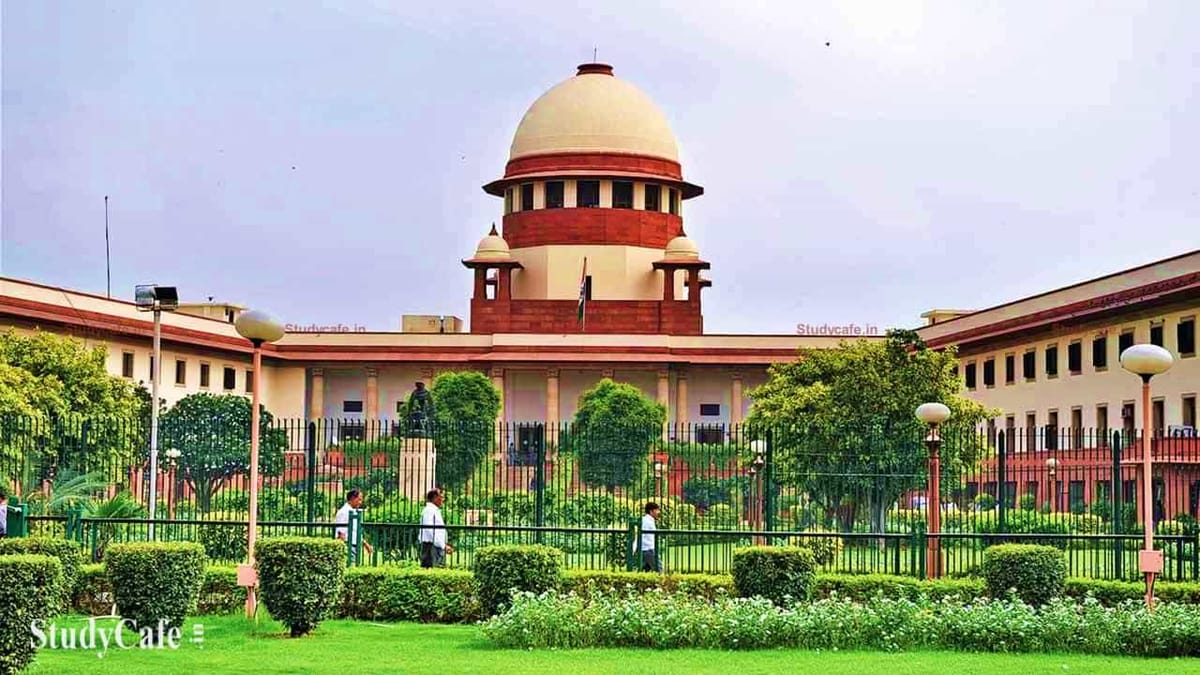SC said that unnecessary litigation can be avoided if the proper tax system is designed
Issue
Section 14A of Income Tax Act, is questioned before the law. Issue arises before the Supreme Court:
“Whether proportionate disallowance of interest paid by the banks is called for under Section 14A of Income Tax Act for investments made in tax free bonds/ securities which yield tax free dividend and interest to assessee Banks when assessee had sufficient interest free own funds which were more than the investments made”
Facts
- The assessees are scheduled banks and in course of their banking business, they also engage in the business of investments in bonds, securities and shares which earn the assessees, interests from such securities and bonds as also dividend income on investments in shares of companies and from units of UTI etc. which are tax free.
- Section 14A was introduced to the Income Tax Act by the Finance Act, 2001 with retrospective effect from 01.04.1962. The new section was inserted in after the judgment of this Court in the case of Rajasthan State Warehousing Corporation Vs. CIT. The said Section provided for disallowance of expenditure incurred by the assessee in relation to income, which does not form part of their total income. As such if the assessee incurs any expenditure for earning tax free income such as interest paid for funds borrowed, for investment in any business which earns tax free income, the assessee is disentitled to deduction of such interest or other expenditure.
- Although the provision was introduced retrospectively from 01.04.1962, the retrospective effect was neutralized by a proviso later introduced by the Finance Act, 2002 with effect from 11.05.2001 whereunder, re-assessment, rectification of assessment was prohibited for any assessment year, up-to the assessment year 2000-2001, when the proviso was introduced, without making any disallowance under Section 14A. The earlier assessments were therefore permitted to attain finality. As such the disallowance under Section 14A was intended to cover pending assessments and for the assessment years commencing from 2001-2002.
- None of the assessee banks amongst the appellants, maintained separate accounts for the investments made in bonds, securities and shares wherefrom the tax-free income is earned so that disallowances could be limited to the actual expenditure incurred by the assessee.
- In absence of separate accounts for investment which earned tax free income, the Assessing Officer made proportionate disallowance of interest attributable to the funds invested to earn tax free income.
- Since actual expenditure figures are not available for making disallowance under Section 14A, the Assessing Officer worked out proportionate disallowance by referring to the average cost of deposit for the relevant year. The CIT (A) had concurred with the view taken by the Assessing Officer.
- The appeal was filed before ITAT, and it was held by the ITAT that disallowance under Section 14A is not warranted, in absence of clear identity of funds.
- The decision of the ITAT was reversed by the High Court by acceptance of the contentions advanced by the Revenue in their appeal.
Findings
This Court is of the view that the proportionate disallowance of interest is not warranted, under Section 14A of Income Tax Act for investments made in tax free bonds/ securities which yield tax free dividend and interest to Assessee Banks in those situations where, interest free own funds available with the Assessee, exceeded their investments.
Judgement
Supreme Court held the decision in Favour of assessee by stating that the tax an individual or a corporate is required to pay, is a matter of planning for a tax payer and the Government should endeavor to keep it convenient and simple to achieve maximization of compliance. Just as the Government does not wish for avoidance of tax equally it is the responsibility of the regime to design a tax system for which a subject can budget and plan. If proper balance is achieved between these, unnecessary litigation can be avoided without compromising on generation of revenue.
To Read The Judgment Download PDF Given Below :
StudyCafe Membership
Join StudyCafe Membership. For More details about Membership Click Join Membership Button
Join MembershipIn case of any Doubt regarding Membership you can mail us at [email protected]
Join Studycafe's WhatsApp Group or Telegram Channel for Latest Updates on Government Job, Sarkari Naukri, Private Jobs, Income Tax, GST, Companies Act, Judgements and CA, CS, ICWA, and MUCH MORE!"
